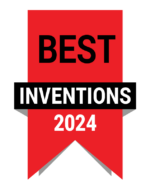Cost-effective In Situ Remediation of Chlorinated Solvents in Svenljunga, Sweden
Case study highlights:
- In situ remediation of groundwater contaminated with Trichloroethylene (TCE) was chosen for a former fur factory in Svenljunga, Sweden, as excavation or thermal treatment was deemed too expensive.
- A targeted application of 3-D Microemulsion® using direct push technology (DPT) successfully reduced groundwater and soil concentrations of TCE, DCE, and VC by approximately 95%, well below remedial targets.
- The chosen remediation method, 3-D Microemulsion injection, was not only effective in achieving significant contaminant reduction but also cost-effective, with a cost of €21/tonne compared to the more expensive alternatives of excavation and thermal remediation.
In situ remediation of groundwater impacted with Trichloroethylene (TCE) was completed at a former fur factory in Svenljunga, Sweden, as it had been determined that excavation or thermal treatment would have been too expensive. A targeted application of 3-D Microemulsion® was performed using direct push technology (DPT) to complete the injections. Validation sampling showed that the concentrations in the groundwater and soils had been reduced by approx. 95%, to well below the remedial targets. 3-D Microemulsion (3DME) is an engineered electron-donor emulsion that offers a steady and long-term source of staged-release hydrogen (in the order of 4 to 5 years from a single application) to enhance the reductive dechlorination (ERD) of chlorinated compounds. It has been optimized to distribute widely upon injection, allowing for high volume applications, reducing the number of injection points and events required onsite. Click the logo to learn more about how 3DME works.

 Americas
Americas Europe
Europe Français
Français Deutsch
Deutsch Italiano
Italiano Español
Español



